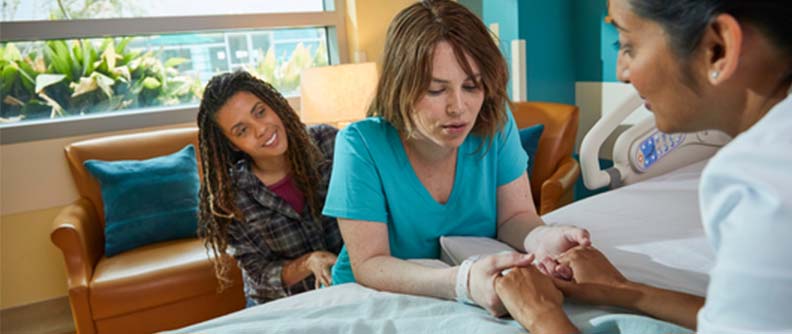Many people make up your birth team. It includes the well-trained professionals at the hospital. It’s also your friends and family members. They help you by lending their support or taking care of tasks you can’t do.
Your hospital team
Several people will help you once you check into the hospital. Your labor and childbirth team will likely include:
- A physician and/or nurse midwife. This person will help you through labor, birth of your baby, and your postpartum period. They are for both you and your baby the entire time.
- Labor and delivery nurses. You’ll probably see your nurse more frequently than anyone else on your team. They will support you through the birthing process, acting as a coach and explaining any procedures along the way.
- An anesthesiologist or nurse anesthetist. This person is available if you need an epidural or spinal pain medication.
- A resident. In some cases, and depending upon where you give birth, a resident may be involved in your care. Residents are medical doctors who are still in training.
When you give birth, other people will focus on your baby. This may include nurses, neonatal nurse practitioners, and pediatricians. The pediatric team will perform a newborn exam before you go home.
Shortly after the birth, a lactation consultant or registered nurse provides breastfeeding support. This person will give you advice as you learn to breastfeed your baby.
Your support person/people
Your personal support person or people will be with you at your birth. They play a vital role in providing emotional and physical support and can help communicate your needs and concerns with your hospital birth team.
Your support people may include a partner, friend, family member, or perhaps a doula. A doula is a trained professional who provides physical, emotional, and informational support before, during and shortly after birth. They help you achieve the healthiest, most satisfying experience possible.
Your team at home
Your team at home is equally important. This includes friends and family members who run errands or take care of last-minute tasks. As you get closer to your due date, it’s a good idea to make a plan for who will take care of other children or pets when you go into labor. Many people go through the early stages of labor at home, so you might want people to be with you at that time.
Keep telephone numbers for friends and family handy. That way you can quickly contact them if you think you’re in labor.
Check out your hospital’s visitor policies
Before you leave for the hospital, it’s a good idea to check to see how many people you can bring with you.
